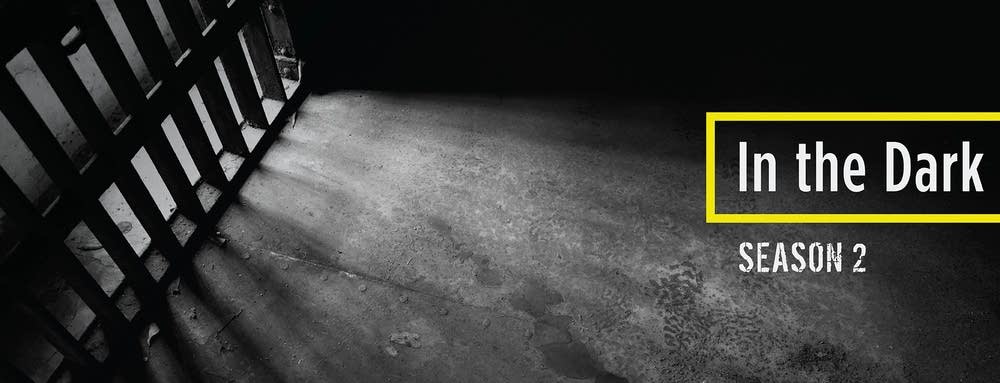Flowers' defense files motions for bail, dismissal
New civil rights lawyer cites obscure law for bail request and prosecutor's "unseemly tactics" for dismissal.

After rising to the U.S. Supreme Court this summer, the murder case of Curtis Flowers landed back in the Mississippi courthouse on Thursday where it began nine years ago: Flowers' new lawyer filed two motions — one requesting bail, the other that the case be dismissed — that vividly previewed how he plans to attack the state's case against his client.
"There has never been any physical or forensic evidence connecting Flowers to the crime; the motive and methods ascribed to Flowers by the prosecution are objectively improbable; the witnesses relied upon to make up the circumstantial case for guilt have by turns been contradictory [or] unbelievable," wrote Rob McDuff, Flowers' defense lawyer.
The motions open a new chapter in a case that's already had many: six trials and four appeals over 22 years.
In June, Flowers' conviction and death sentence were thrown out by the U.S. Supreme Court after the justices found, in a 7-2 ruling, that Fifth Circuit Court District Attorney Doug Evans violated Flowers' constitutional rights by intentionally striking black jurors at his 2010 trial. That trial was Flowers' sixth for the 1996 murders of four people at Tardy Furniture in Winona, Mississippi. The high court's ruling sent the case back to Winona for a seventh trial.
One of Thursday's motions is aimed at circumventing that outcome, asking the court to block a retrial and dismiss the charges against Flowers. The other seeks Flowers' release on bail.
While such motions are common and are often rejected in capital cases, two new factors may work in Flowers' favor: He is now represented by a highly accomplished civil rights lawyer, and Evans' case has been challenged publicly by significant new information revealed in an investigation by journalists.
McDuff, who has won several cases at the U.S. Supreme Court, presents arguments that a judge will have to consider seriously. For example, he cites court rulings that he contends show that the repeated trials of Flowers are extraordinary and should end immediately. The dismissal motion argues that because four of Flowers' convictions have been overturned due to Evans' misconduct, Flowers' constitutional rights would be violated yet again if the prosecutor's office — given "the unseemliness of its tactics" — were to subject him to an unprecedented seventh trial.
"The prosecution ... has been afforded extraordinary leeway," McDuff wrote. "Research has revealed no other American criminal case ... in which the defendant has been forced to run the same gauntlet seven times on account of the prosecution's chronic inability to succeed within the rules."
In the other motion, Flowers' attorneys asked for a "reasonable bail" to be set so their client, who's been behind bars for 22 years, can live at home as his case moves toward resolution. Flowers, 49, has never been granted bail, though in many cases his lawyers haven't requested it.
But McDuff argues that the Mississippi Constitution requires it in this instance. "[The Constitution] provides that a person accused of a capital offense shall be granted bail unless 'the proof [of guilt] is evident or presumption [of guilt] great,'" McDuff wrote. "Evidence that has surfaced since the last trial demonstrates that the proof is not evident, and the presumption is not great."
Evans didn't return phone calls for comment on Thursday. His office will have to reply formally to the motions in the weeks ahead. If his few public comments are any indication, Evans is likely to oppose dismissal of the charges against Flowers and gives little credence to the high court's condemnation of his jury selection practices. "I think it was a ridiculous ruling," Evans told The Winona Times earlier this month. "They basically said there was nothing wrong with the case and reversed it anyway."

McDuff argued that the state's case against Flowers has always been tenuous and became weaker in the past two years.
He draws heavily from the findings of Season 2 of In the Dark, an investigative podcast reported by journalists from APM Reports. Among the most important revelations in the podcast: Jailhouse informant Odell Hallmon was lying when he testified that Flowers confessed to him; key witnesses Clemmie Fleming and Ed McChristian were pressured into saying they'd seen Flowers on the morning of the murders; and evidence implicated both Doyle Simpson and Willie James Hemphill but investigators turned away from them without good reason.
"These people are more likely suspects than Curtis Flowers who, at the age of 26, had no criminal record and nothing in his background to suggest he would take a pistol and shoot four people in broad daylight in a commercial establishment in downtown Winona," McDuff wrote, foreshadowing his defense strategy should the case proceed to trial.
McDuff also cited an obscure state law that seems to require that bail be granted to anyone who's had two capital trials for the same crime that ended in hung juries. Since the juries in Flowers' fourth and fifth trials deadlocked, McDuff contends that the law applies to him. "In these circumstances, Mississippi law is clear: Bail is mandatory," he wrote.
The request for bail also contends that Flowers isn't likely to flee and doesn't pose a danger to his community. Affidavits from four corrections officers attest to Flowers' "exemplary prison and jail record." One official described Flowers as a "model prisoner" with "one of the best ... records [he's] ever reviewed."
The motions are likely to come before the same judge who presided over Flowers' fifth and sixth trials, Mississippi Circuit Judge Joey Loper. A hearing is expected in the fall. Flowers is still on death row at Parchman prison. He will soon be moved into pretrial detention at a county jail, where he'll remain unless his bail motion is granted.

